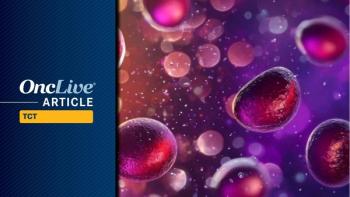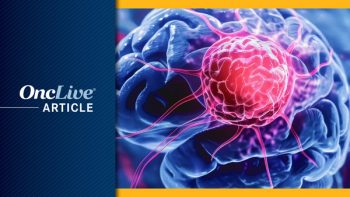
Rationale for Further Development of CAR T-Cell therapy
Stephen J. Schuster, MD: I’m Steve Schuster from Abramson Cancer Center at the University of Pennsylvania in Philadelphia. Joining me today for a lively discussion are my friends and colleagues Dr Matthew Frigault from the MGH [Massachusetts General Hospital] in Boston, Dr Caron Jacobson from Dana-Farber Cancer Institute in Boston, Dr David Miklos from Stanford University Medical Center in Stanford, California, and Dr Loretta Nastoupil from The University of Texas MD Anderson Cancer Center in Houston, Texas.
Today we’re discussing a number of topics related to the use of CAR [chimeric antigen receptor] T cells in patients with lymphoma. We’ll be making reference to ALL [acute lymphoblastic leukemia] as well, because that was the earliest data. Most of us have some experience. But we are primarily treating lymphoma patients right now. We’ll talk about the latest information that’s out there, some of which was presented in December at the American Society of Hematology Annual Meeting, and most recently at the meeting that just happened, which is ASCO [American Society of Clinical Oncology Annual Meeting].
Let’s begin with lymphoma and possibly discuss leukemia. Some of the leukemia data will come out as we discuss lymphoma, and we can compare and contrast diseases that are treated with the same agent but with different outcomes.
What is the rationale for CAR T-cell therapy? We know it’s approved for diffuse large B-cell lymphoma. There must have been a need if the FDA approved it. What do you think is the rationale for further development of diffuse large B-cell lymphoma? There will be new developments. Who wants to weigh in?
Matthew J. Frigault, MD: It’s 1 of the first therapies we’ve brought to the market that’s a cellular gene therapy, and we’ve overcome barriers in terms of technology and regulatory hurdles. And we’ve seen it only accelerate. As remarkable as the responses have been, there’s still room to improve the technology, whether it’s in efficacy or toxicity or just having more access to patients.
Stephen J. Schuster, MD: I agree. What you’re seeing right now are the first-generation cars, the Model Ts. It’s going to get better and better, and every manufacturer is going to say that they make the best car. That’s what happens in Detroit and everywhere else, right?
David Miklos, MD: If we consider what happens when the patient has progression and relapse after R-CHOP [rituximab, cyclophosphamide, hydroxydaunorubicin hydrochloride, vincristine, prednisone], chemotherapy and other things that we call salvage on a goal toward going to a high-dose stem cell transplant with, at best, a 50% response to salvage and 50% durable responses after autotransplant. We can help many patients by bringing an effective immunotherapy forward, if for no other reason than what they endure going through mobilization, salvage chemotherapy, and an autotransplant. If you add it up, that is 5 months of their lives right there, let alone the problem of median
Stephen J. Schuster, MD: Just to reiterate, because they’re really important points. There are patients who would not be candidates for autotransplant who are candidates for CAR T. This relates to patients who are older and have comorbidities, because it’s a lot easier on patients, as we’ve learned, than high-dose chemotherapy. This is a benefit for those patients. We’ll wait for additional studies to see if we can move it to second-line for some groups of patients that are not transplant eligible. Also, our ability to salvage patients with autotransplant in the immunochemotherapy era has dropped significantly. I remember when we first started doing autotransplants in the late 1980s, prior to rituximab. And 50% of the patients were fixed, OK? In the current era, with rituximab and particularly those who fail within the first year of receiving a rituximab-containing induction regimen, the outcome with second-line chemotherapy and autotransplants is kind of abysmal. That’s the other big niche for CAR T in aggressive lymphomas.
Transcript Edited for Clarity




































